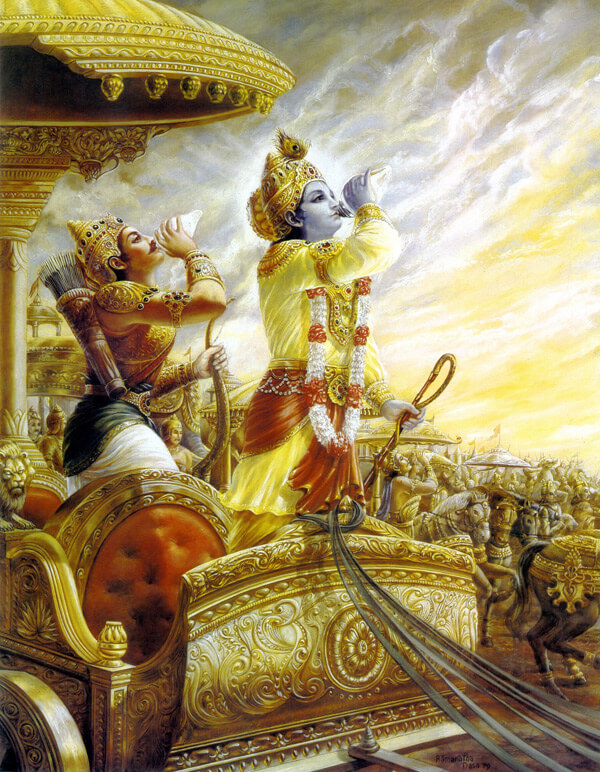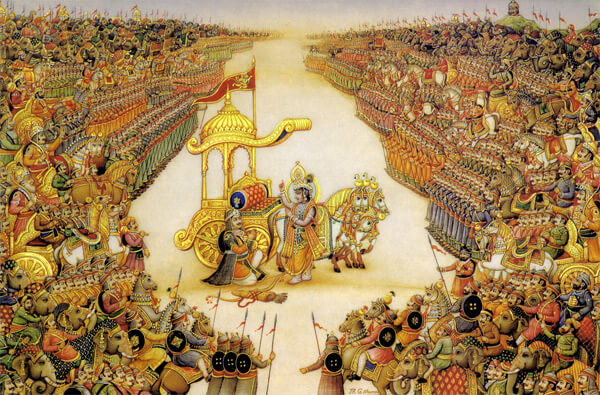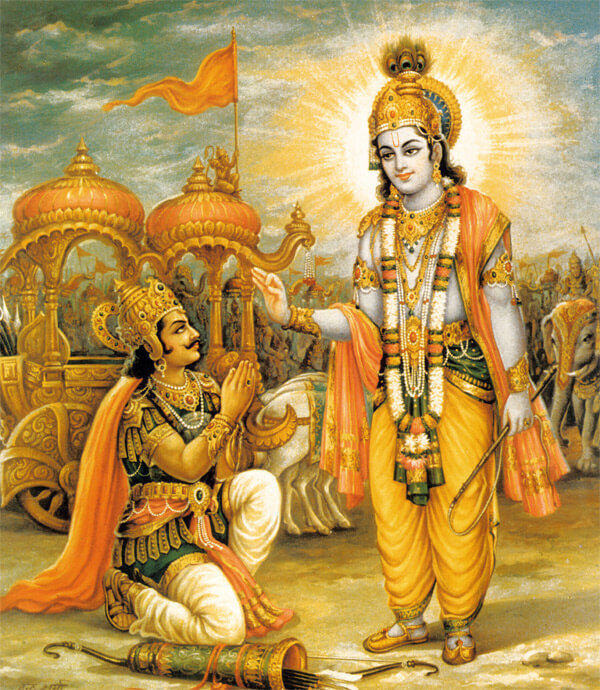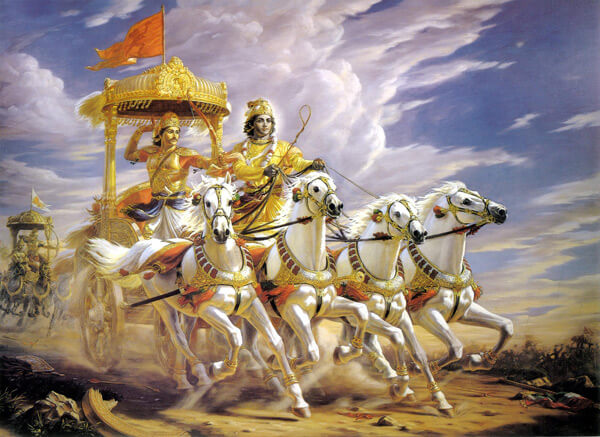Our next Bhagavad Gita class is this Sunday, August 18th from 7-9 pm at Marin Yoga Therapeutics Studio and online. This class is part of a year-long monthly series for students interested in the learning Vedanta to gain an even, steady mind through pleasant and unpleasant circumstances. The course is open to new applicants; previous classes are available via YouTube.
In this weeks class, we will be will dive into Chapter 4 and learn what the Bhagavad Gita teaches us about the inexplicable nature of yourself as a non-doer. In this chapter, Krishna teaches Arjuna that suffering comes from identifying with the body and mind, because the sense of self is based on a limited notion of the self. Gaining the non-dual vision of oneness allows you to transcend the limitations of the body and mind, which means to know yourself as one with a vast nature that transcends all limitations that come and go in time. You are awareness by nature which is timeless. As awareness you don’t come and go. As awareness you are a changeless being who is already whole and already healed.

Here is a brief review of the Bhagavad Gita teachings we have studied thus far:
In Chapter 1 we were introduced to Arjuna’s mythological quest to gain the highest happiness—that which is transcendent of duality-based worldly experiences such as gain and loss, pleasure and pain. Sensitive Arjuna realized that he would never really be happy even if he fought and won the epic war of good over evil against his cousins who had unjustly taken over the throne. Suddenly, Arjuna saw the limitations of gaining the throne and realized that it would never bring him any real happiness. Even though he could gain fame and fortune with a kingdom in his reign, he would have to kill his relatives and archery teachers to do so. When he was pushed to the edge, he finally saw the inherent paradox of life: that there is always a mixture of gain and loss in any human experience and there is never a permanent gain from which lasting happiness ensues. Seeing the futility of attempting to achieve permanent happiness, and seeking to transcend his dire circumstances, Arjuna asked Krishna to teach him exactly what is the highest happiness. Krishna, the enlightened charioteer, known to be a carrier of the knowledge of ultimate happiness, saw Arjuna’s sincerity and decided to teach him the non-dual teachings of Vedanta scriptures on the vision of oneness.

In Chapter 2, Vedanta’s non-dual vision is introduced as a means for gaining the highest happiness and the promise of freedom from being a wanting person, one who always needs something more in order to simply be happy. Karma yoga is discussed as the lifestyle that helps one grow in this knowledge by striving to gain an abiding attitude of glad acceptance through the ups and downs of life.

In Chapter 3, Karma Yoga Attitude is defined as recognizing that you only have choice in action and not in the result of your actions. Humans suffer due to the attachment to getting what we want when we want it. This demanding attitude towards life is a set up for misery. With karma yoga there is a recognition that the results of action come from a higher order, a cosmic algorithm that determines the outcome based on the law of karma. God calls the shots, not one’s desires and choices. Right choices are not in the hands on the individual alone. This common assumption is seen as arrogant, entitled, not giving credit where credit is due. The right circumstances for making good choices are provided for unknown reasons by an order over which we have only a little control, one choice at a time. Many factors are not in our control. A humble attitude towards the results of our actions leads to a more lasting happiness. Gaining the knowledge of the highest happiness is promised by enlightened Krishna in the Bhagavad Gita for it is through gaining the non-dual vision of oneness that we transcend worldly experience of duality, including pleasure and pain, right and wrong, good and evil. Attachment to our desires and to the outcome of our actions leads to misery in the long run. Understand that the pursuit of desires is necessary and helpful, but expecting the results to accommodate our desires leads to unhappiness. The outcome of our desires can be: 1) less than expected 2) more than expected 3) equal to expected 4) opposite of expected. The result of our actions is based on the law of karma, a complex topic that requires further teaching from Krishna. The point is to give up the results and understand that the results are in God’s hands, a higher power, or the law of karma. This respectful attitude can transform a person as they become humble with regard to results and open to receive what is wanted or unwanted. One simply accepts the results with equanimity and glad acceptance, knowing it comes from a higher intelligence than one’s limited mind, which does not understand how to gain permanent lasting happiness.






